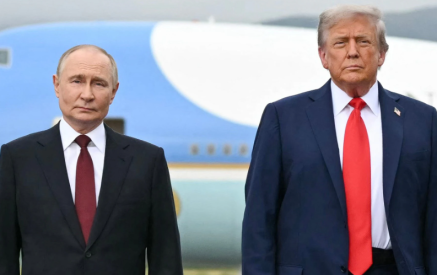“Aravot’s” interview with expert on Arab studies, also researcher at the Institute of Oriental Studies, also Professor, Araks Pashayan
– More than 40 days has elapsed since the day that the Yezidis celebrate the beginning of their genocide, August 3. Although it is known that Islamic extremists have started the process of territorial capture for their “Caliphate” since June. What have we recorded for these four months or forty days? What is currently going on now in Northern Iraq?
– In fact, Iraq’s sovereignty is at stake. Violence and hostilities are on. The northern regions are occupied, including Mosul, where the “Islamic state” has established state groupings as a source of legislation by strict application of Sharia. A state religion is established. A part of Yezidis continue being in expatriation. Both the Iraqi army and Kurdish army, Peshmerga, continue the counteraction against the “Islamic state”.
– Periodically, various types of international and local experts express opinion that the United States underlies these “stories”, the so-called provoker and instigator. What are the reasons for this opinion? And do you agree with them?
Read also
– In general, in 2003, after the US-led invasion, Iraq appeared in a long-run and somewhat controlled chaos, in so far not being able to correct the spine. During Saddam Hussein’s tenure, Iraq with Arab nationalistic trait was a powerful state with a strong army and sustainable economy, although an authoritarian system. The USA plans to establish democracy in the country was not only a failure, moreover, the country was plunged into an unprecedented crisis, thus creating centers of tension in the region. Over the years, the ongoing war revealed deep those in-depth contradictions that existed between Shiites and Sunnis. On the other hand, the intensity around different ethnic and religious communities living in Iraq increased. Iraq became the fulcrum, from where the benefits and interests of various regional force centers, including Iran’s, Turkey’s and Sunni Arab monarchies of Persian Gulf, began again to clash. Apparently, the goal of superpowers was to weaken the regional force centers, including Iraq and Syria, to be able to fully control the Middle East.
– A few days ago, the White House spokesman already said that the United States is at war with Islamic extremists and ISIS, even though John Kerry prior to it had rejected this formulation. Does it turns out that the United States has entered into a fight with “a snakecherished in its bosom”? What kind of war situation is between the United States and ISIS?
– The United States is responsible for Iraq’s stability, integrity and sovereignty, and perhaps is trying to demonstrate that it is ready for counteraction. Much has been said about the fact that the U.S. authorities are likely to cooperate with al-Assad’s regime. Military operations have already been conducted. As to what extent the US statements and actions against the “Islamic state” are determined and sincere, it is questionable. After all, if it were not for continued support by separate superpowers and regional states to the Islamic extremist political groups in the fight against Bashar al-Assad, today the “Islamic state” would not exist, which is a serious threat not only to the region but to the international community and the EU countries.
– How much likely do you consider the beginning of the Third World War, which recently is also often spoken of by different experts?
– The current situation created in international relations is very similar to the times of the Cold War, when the United States and the Soviet Union were conflicting with each other in a third country. The same trends are available today. On the one hand, the United States with its allies, on the other hand, Russia with its allies.
– Everyone is talking about the fact that in the beginning of the 21st century, the world was as silent and far from Yezidis as in the beginning of the 20th century – from Armenians, again the ships of the West could not climb our mountains… What can such a delay be explained that lasted for weeks and cost the lives of thousands of people, now, in our days.
– Tragedies of nations will always happen. It is inevitable under the present race of such competition of superstates and especially arming.
– And finally, Armenia’s role in all of this. How would you assess the stance of our state to realities in the Middle East?
– Armenia, although, is definitely far from the original conflict center, however, we are living in the same region. Our immediate neighbors: Iran and Turkey, are involved in a regional conflict. In addition, there are Armenian communities not only in Syria but also in Iraq, including in the northern region, Kurdistan. (Note that the Armenian language is considered one of the official languages in Iraq). About six dozen Armenian families living in Mosul were forced to flee from the “Islamic state” attacks, abandoning their belongings, homes and finally the Armenian church. So, Armenian need to focus on current issues and continue joining the efforts for establishment of peace and stability in the region at international levels, trying to raise the problems of minorities in the Middle East, including the Yezidis, which has already been implemented.
Interviewed by MELANIA BARSEGHYAN























































